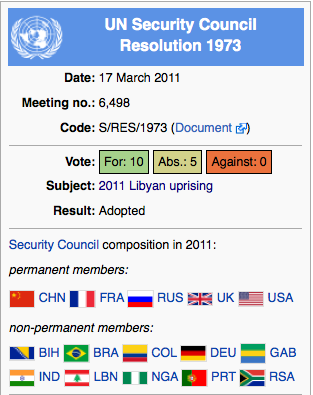Excerpt:
Conspiracy speculation
In an interview with Libération on April 28, 2011, Strauss-Kahn had stated he was "worried his political opponent, Nicolas Sarkozy, would try to frame him with a fake rape".[60][61] Paris politician and advocate of gender equality Michèle Sabban said she was convinced there was an international plot to frame him.[62][63]
On May 15, Strauss-Kahn's political opponent Henri de Raincourt, a minister for overseas co-operation in the ruling UMP party, stated, "one cannot exclude thinking about a setup."[3][64]
A poll found that a few days after his arrest some 57% of the French public believed he was the "victim of a smear campaign".[65][66] Le Monde commented that the poll was a violation of the 2000 law Guigou that "requires that no such polls be taken about someone protected by the presumption of innocence", calling the conspiracy theories a sign of a "democracy in regression".[67][68]
Two weeks after the arrest, Russian Prime Minister Vladimir Putin expressed his personal doubts about the allegations.[69] Putin said: "It's hard for me to evaluate the hidden political motives but I cannot believe that it looks the way it was initially introduced. It doesn't sit right in my head."[70][71]
http://bpr.berkeley.edu/?p=1870
Excerpt:
Five Abstentions: International Reluctance in ACTUALLY Desperate Situations
Posted by Alex Kravitz on March 18, 2011 , 4 Comments
by Alex Kravitz
I examine motivations behind the five abstentions — China, Russia, India, Brazil and Germany — to UN Security Council Resolution 1973, the imposition of a no-fly zone and arms embargo on Libya’s Qaddafi. The resolution passed anyway, but these countries refused to assent. Why?
The United Nations Security Council has historically been less important than it is today. From its inception immediately subsequent to WWII up until the PRC replaced Taiwan as the representative of China in 1971 as one of the five permanent members (U.S., U.K., France, Russia and China), the body had no international legitimacy whatsoever. The U.S.S.R. adopted an empty chair policy until the PRC replaced Taiwan, meaning not that the Soviets boycotted every meeting (though they did boycott some meetings), but rather that the Soviets attended, often vetoed on principle, and insisted an empty chair sit in the room to represent the missing representative of mainland China.
One of the worst times the Soviets boycotted the meeting was on 25 June 1950, when the Security council voted 9-0-1 (the body at that time comprised only 11 members, not the modern 15) to pass UNSCR 82, giving the semblance of international legitimacy to Truman’s want for a war of containment in Korea. By this point in the young Council’s history, the “First World” and First World-aligned countries had already figured out how to get around Soviet blocking tactics, and since the UN Charter had not specified whether or not the abstention or absence of a permanent member (the permanent five are the only ones with veto power) was considered a veto, the others decided that an absence of a permanent member did not affect the quorum (a ridiculous premise with no Charter text to back it up, although they argued there was no Charter text to indicate a quorum had not been met), and that absence would simply not be recorded as yea, nay or abstention. They also covered their asses and agreed that if they were to record the Soviet position as something other than absence, it would be abstention, not ‘nay’, and that the abstention of a permanent member would not be considered a veto.
I examine motivations behind the five abstentions — China, Russia, India, Brazil and Germany — to UN Security Council Resolution 1973, the imposition of a no-fly zone and arms embargo on Libya’s Qaddafi. The resolution passed anyway, but these countries refused to assent. Why?
The United Nations Security Council has historically been less important than it is today. From its inception immediately subsequent to WWII up until the PRC replaced Taiwan as the representative of China in 1971 as one of the five permanent members (U.S., U.K., France, Russia and China), the body had no international legitimacy whatsoever. The U.S.S.R. adopted an empty chair policy until the PRC replaced Taiwan, meaning not that the Soviets boycotted every meeting (though they did boycott some meetings), but rather that the Soviets attended, often vetoed on principle, and insisted an empty chair sit in the room to represent the missing representative of mainland China.
One of the worst times the Soviets boycotted the meeting was on 25 June 1950, when the Security council voted 9-0-1 (the body at that time comprised only 11 members, not the modern 15) to pass UNSCR 82, giving the semblance of international legitimacy to Truman’s want for a war of containment in Korea. By this point in the young Council’s history, the “First World” and First World-aligned countries had already figured out how to get around Soviet blocking tactics, and since the UN Charter had not specified whether or not the abstention or absence of a permanent member (the permanent five are the only ones with veto power) was considered a veto, the others decided that an absence of a permanent member did not affect the quorum (a ridiculous premise with no Charter text to back it up, although they argued there was no Charter text to indicate a quorum had not been met), and that absence would simply not be recorded as yea, nay or abstention. They also covered their asses and agreed that if they were to record the Soviet position as something other than absence, it would be abstention, not ‘nay’, and that the abstention of a permanent member would not be considered a veto.
http://en.wikipedia.org/wiki/United_Nations_Security_Council_Resolution_1973
Excerpt:
Ten Security Council members voted in the affirmative (Bosnia and Herzegovina, Colombia, Gabon, Lebanon, Nigeria, Portugal, South Africa, and permanent members France, the United Kingdom, and the United States). Five (Brazil, Germany, and India, and permanent members China and Russia) abstained, with none opposed.[3]
http://ebookcashstreams.com/HotNewsBlog/2011/07/c-i-a-finally-run-out-of-money-needs-french-warmonger-puppet-for-weapons/french-puppet-president-nicolas-sarkozy/
Excerpt:





No comments:
Post a Comment